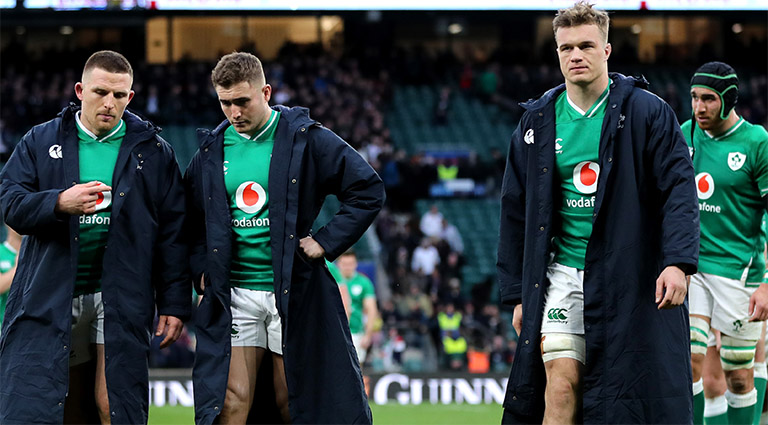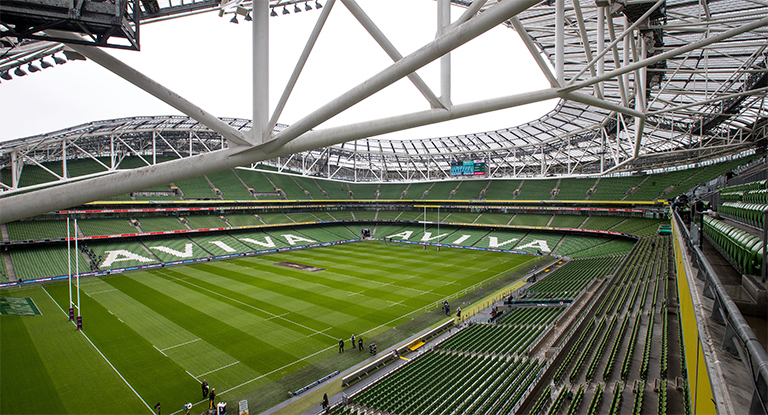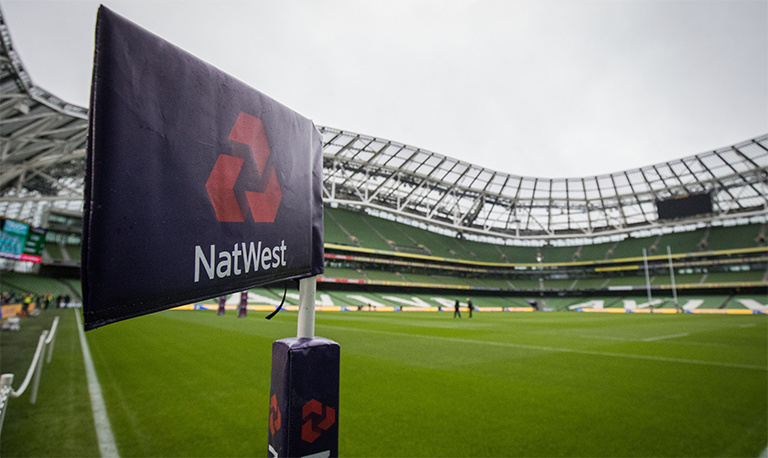Irish Rugby Is In Big, Big Trouble As True Extent Of Problems Are Made Public
Latest posts by Will Matthews (see all)
- Six Nations 2025 – All the action from Round Five of the Championship - March 14, 2025
- Ireland team named for Six Nations finale with Italy - March 13, 2025
- Big change in expected Ireland team to take on Italy - March 13, 2025
Big trouble.
Irish Rugby Football Union (IRFU) Chief Executive, Philip Browne, has this morning met with members of the Oireachtas Covid-19 Response Committee in Seanad Éireann to lay bare the devastating financial impact the global pandemic has had on the union’s accounts and the wider repercussions for rugby in this country.
Speaking in front of the Oireachtas Covid-19 Committee, Browne outlined how Irish Rugby’s net losses in 2020 as a result of Covid-19 are forecasted to amount to in excess of €30 million, and the union’s financial situation will deteriorate ‘at an alarming rate’ into 2021 if spectators do not return to stadia in meaningful numbers.
While the rescheduling of Ireland’s two outstanding 2020 Guinness Six Nations fixtures, against Italy and France, for next month, and the introduction of a new eight-team Autumn Nations Cup, will mark the return of Test match rugby for the first time since the suspension of the season back in March and provide Irish Rugby supporters with a much-needed tonic, the absence of spectators, and critical match day revenue streams, at Aviva Stadium, remains the key issue for the IRFU.
In his address on Friday morning, Browne warned that despite the implementation of cost-cutting measures across the union, including salary cuts of up to 20%, redundancies and the elimination of all but the most critical overhead costs, the IRFU’s current financial position is not sustainable and will require ‘significant additional actions’ after December if there is no sight of supporters returning at that point.
Furthermore, Browne said the IRFU will be forced to commence borrowings in January, forecasting that until ‘we can admit spectators in meaningful numbers into our stadia, and return to some level approaching self-sustainability, the whole rugby infrastructure built over the last 150 years is under threat.’
While the return of professional rugby in August, as the four Provinces resumed the shortened 2019/20 Guinness PRO14 campaign with a series of behind-closed-doors Inter-Provincial games, provided Irish Rugby with a positive lift in these extraordinary times, it is anticipated that the IRFU will continue to ‘burn’ at least €5 million a month, primarily on Professional Game Wages and Costs, if the situation does not improve.
Based on these financial projections, Browne alarmingly warned that ‘the very existence of professional rugby on the island would be under significant threat in 2021’.
“The adjective ‘unprecedented’ has been overused over the past six months but our experience to date and history will show that if anything, the description of the 2019/20 season as being unprecedented is significantly understated,” Browne, appearing at the meeting on ‘The Impact of Covid-19 on Team Sport in Ireland’ alongside representatives from the FAI and GAA, said.
“Our season, and our business operations, were thrown into chaos by the Covid-19 pandemic in March when our Ireland v Italy Six Nations fixtures became the first mass gatherings to be cancelled. This represented the first major blow to our sport and finances.
“Pre-Covid our financial situation was looking quite positive. Now we are facing an unprecedented cashflow crisis, as we try to work towards the objectives of protecting our National Men, Women’s and Provincial teams, ensuring that we preserve the amateur club game and support the jobs of our 500 employees to the extent that we can.”
Browne continued that the catastrophic net losses in 2020 of over €30 million excluded 10-year ticket renewal monies due to the IRFU, amounting to over €32 million. The union has been unable to invoice for these sums in the absence of any visibility of supporters attending games.
“The current projected position to the end of June 2021, showing a negative cash swing of almost €40 million from a cash surplus of some €28 million in June 2020, to borrowings of just over €10 million, backed by union assets, is very serious and is being kept under constant review,” Browne explained.
“If these projections were to materialise, the very existence of professional rugby on the island would be under significant threat in 2021. Our Audited financial statements for the period to 31st July 2020 will show an actual record financial loss of more than €35 million.
“Back in January 2020 we were forecasting for a planned deficit of €3.5 million. Until we can admit spectators in meaningful numbers into our stadia, and return to some level approaching self-sustainability, the whole rugby infrastructure built over the last 150 years is under threat.
“We will, of course, continue to follow NPHET and public health guidelines in relation to this, but that support comes at a significant cost to our sport. It is our ambition, with the support of Government, to survive as a properly functioning unit and in this way repay the faith shown in us by playing our part in supporting the national recovery effort which will demand so much of us all in the years to come.”
Before closing, Browne took the opportunity to thank the volunteers in rugby clubs and schools around the country who have faced unprecedented challenges posed by Covid-19 in recent weeks and months but have shown diligence and unwavering commitment to preserve the club and school’s game in Ireland.
“I must also thank the Committees and sub-committees at IRFU and the Provinces and the IRFU and Provincial Staff, who have also adapted to the changed working circumstances and in the case of our staff have experienced significant pay cuts,” Browne concluded.
“I also should acknowledge the Provincial Chief Executives who have worked closely with the Senior Management Team at the IRFU, to ensure a coherent and aligned approach to the challenges that we are collectively facing.
“We believe that rugby has a significant role to play in the physical and mental wellbeing of Irish people, and in the face of this cruel pandemic we continue to have a positive contribution to public health and Irish society and hope to do so for years to come.”




